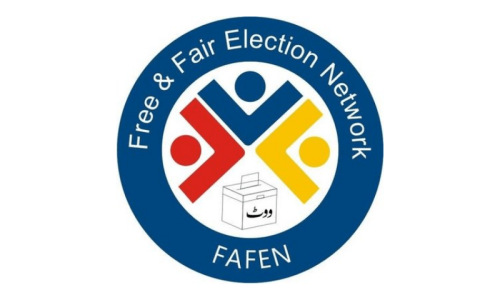 It is common for outsiders to think that Iranian women are living a suppressed life in a state controlled by clerics. Dr Faiza Azimzada, a professor and deputy head of research studies at Imam Sadiq University, Iran, was quick to dispel this view, stating that women were as proactive as men in all walks of life.
It is common for outsiders to think that Iranian women are living a suppressed life in a state controlled by clerics. Dr Faiza Azimzada, a professor and deputy head of research studies at Imam Sadiq University, Iran, was quick to dispel this view, stating that women were as proactive as men in all walks of life.
She was in Karachi recently and spoke of her government’s measures for the betterment of the people in general and women in particular. She said women could work in any department with complete freedom.
“In Iran, women have important positions in universities, in government jobs, in culture and other fields. The support for women in society is tremendous,” she said. “If a woman has a baby, she can go home early, and her wages will not be cut. She can also take six months leave with pay. The government is very particular about this.”
Commenting on the punishment for rape, she said women got speedy justice from courts. “In Iran if a woman kills a man while being raped, she will not be punished as she is protecting herself.
“If a woman is harassed on the street, or anywhere, the punishment for such behaviour is very severe. If a woman goes to court for redress of anything, she gets justice right away. For a society to live in harmony, it is necessary for courts to give speedy justice. Every person, be it a man or woman, a foreigner or a native, Muslim or non-Muslim, will get speedy justice from the courts. It is not left pending and courts are not biased,” commented Dr Azimzada.
While working with men, do women face problems at the workplace as is common in the world?
“When a woman wears hijab, it protects her from everything, from harassment at the workplace or anywhere for that matter,” said Dr Azimzada. “If a woman doesn’t cover herself properly, she is inviting trouble. The rules are enforced very strictly, especially in government organisations. If the police are called for help, they will arrive at once.”
There is no quota fixed for women representatives in parliament in Iran. Men and women may participate in elections equally. “If she has the capability, she will be elected. She cannot become president, but she can become vice-president. We have a woman vice-president. There are ministries that are headed by women also,” she stated.
“There are 18 women in parliament comprising 290 members. Of the one-fourth women who wanted to contest for the seats, many were rejected on the basis of not having master’s degrees. You have to have an MA degree to participate in elections.”
Most educational institutions in Pakistan – except the NWFP – have a large majority of female students. The situation is somewhat similar in Iran.
“In the past there were fewer women. Now after a recent census there are 67 per cent women in higher educational institutions as compared to 33 per cent men. And because of the large majority, there will be a greater representation of women in parliament in the near future,” said Dr Azimzada.
After the revolution, wearing hijab was made compulsory. We hear of women who are not happy about this rule. When asked about it, Dr Azimzada’s views were clear on the subject.
“When you work in a hospital, you wear a coat or a nurse wears her uniform, a policewoman will wear her uniform. So if a woman loves Iran, she will wear hijab, which has been decreed by the government as mandatory. It is compulsory for her to wear it if she steps out of her home; she cannot do otherwise even if she wants to. Foreigners and non-Muslim women also have to wear hijab. They can wear dupatta on the head unlike the Iranian Muslim women. When a woman is inside the home – even in a party – she can wear what she wants to, but she will have to cover herself when she comes out on the street.”
Dr Azimzada emphasised that there were many political parties in Iran and that they had freedom of thought and speech. The government supported them financially even if they were in the opposition.
Contrary to the popular belief, most of the universities in Iran are co-educational. Till class five, education is compulsory and free up to the college level. After completing high school in the rural areas, there are hostels in the city where students can go and continue their studies. Adults are also encouraged to study and facilities are provided to them.
Health facilities for women in the rural areas and far-flung areas are very good, states Dr Azimzada. “Iran is one of the leading developing countries in health-care. It is polio-free now and has been acknowledged abroad for it. It is also one of the 14 countries which have been acknowledged internationally for their work on health in the country. The health system is good because students who become doctors are sent to the rural areas for four years and they get their degrees from the government after they have completed the tenure. So, in this way they get their experience and people in villages also have doctors.”
How is corruption dealt with in Iran?
“The government is very strict about corruption in all walks of life. Punishment is very severe and speedy so it is a great deterrent to keep corruption at bay. As for honour killing, we do not have honour killings in Iran. If a young man and woman run away from their homes, they will have to get married. But we have strict punishment for adultery,” said Dr Azimzada.












































Dear visitor, the comments section is undergoing an overhaul and will return soon.